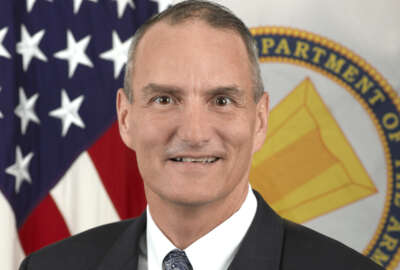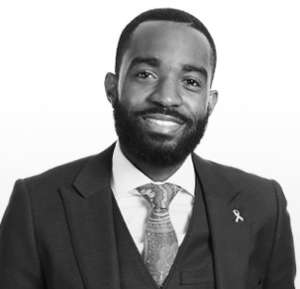
Army Corps, DHS hire DoD executives for IT leadership roles
The Army Corps of Engineers and Department of Homeland Security's new technology hires have federal backgrounds, for a change.
The Army Corps of Engineers and the Department of Homeland Security finally filled high-level technology roles that have been without permanent leaders for months.
The Army Corps hired Dovarius Peoples as its new chief information officer and DHS hired Brian Teeple as its new chief technology officer. Both executives come from within government, and bring a wide variety of experiences to their roles.

Peoples will start at the Army Corps on April 28, replacing Greg Garcia who moved to the Army deputy CIO’s role in October.
Teeple replaces Mike Hermus, who left in March 2018 to return to the private sector. Kevin Wince had been acting CTO since Hermus left.
Both hires actually break up the recent trend of agencies bringing in industry IT executives to fill key government roles. In the last few months, the Interior Department’s new CIO came from outside the federal sector as did those at the Transportation and State departments.
Peoples comes to the Army Corps after spending the last 18 months with the Army Network Enterprise Technology Command (NETCOM) where he served as the deputy to the Commanding General, the command’s senior technical director and the chief engineer for the global command.
Peoples has had a long career in government, working at the Office of Personnel Management as the associate CIO for Enterprise Infrastructure Solutions, the National Security Agency and Defense Information Systems Agency.
In his new role, Peoples inherits a $576 million IT budget for fiscal 2019, of which 88 percent of the projects are on schedule and 100 percent are on budget, according to the federal IT dashboard.
As CIO, Garcia focused on IT modernization across the Corps of Engineers, including adopting cloud services and software-as-a-service models for application rationalization.

Similar to Peoples, Teeple comes to DHS from the Defense Department where he served as the acting deputy CIO for command, control, communications and computers and information infrastructure capabilities (C4IIC).
“As CTO, Dr. Teeple is responsible for leading the redesign and modernization of the DHS network, digital innovation and solutions, and strategic technology management,” said a DHS spokesperson in an email.
Prior to being deputy CIO, Teeple worked as the director of the Advanced Technology Office in the Advanced Systems and Technology Directorate, National Reconnaissance Office (NRO). In that role, he was the focal point for all technology development activities across the NRO tech enterprise and represented the space science and technology interests of both the NRO and Intelligence Community in various interagency and international forums.
FedScoop first reported DHS’s hiring of Teeple.
New roles for 2 more federal IT execs
Trey Kennedy, the senior advisor to the Federal CIO Council, has taken a new job with the Justice Department where he will work in the CIO’s office.
Alycia Yozzi and Annette Maldonado are expected to take over for Kennedy to help run the day-to-day operations of the council.
Yozzi already leads the Web Council and Maldonado leads the CXO Fellows program.
While with the council, Kennedy played a key mostly behind the scenes role in many of the CIO Council’s biggest successes, including the technology hiring fair, a chief information security officer’s handbook, the refresh of the council’s website and expanded social media efforts.
Related Stories

Overwhelming response at hiring fair demonstrates a job in federal IT is in demand

Another candidate emerges for OFPP administrator; DHS, GPO lose IT execs
A USCIS spokesman confirmed Oshinnaiye started March 18. He replaced Keith Jones, who left in July 2018.
He comes to USCIS from Dev Technology, an IT services and integration company, where he was the chief technology officer for almost two years. In that role, Oshinnaiye led the company’s efforts in IT strategy, innovation and technology initiatives for federal clients by establishing things like hack-a-thons and virtual labs.
This is Oshinnaiye’s second tour of duty at USCIS. He previously served four years with the agency in a variety of roles, including the last 17 months in 2016 as the division chief for enterprise infrastructure. In that role, he extended the cloud services platform to more systems, expanded automated deployment capabilities and modernized the USCIS Contact Center.
Copyright © 2025 Federal News Network. All rights reserved. This website is not intended for users located within the European Economic Area.
Jason Miller is executive editor of Federal News Network and directs news coverage on the people, policy and programs of the federal government.
Follow @jmillerWFED




